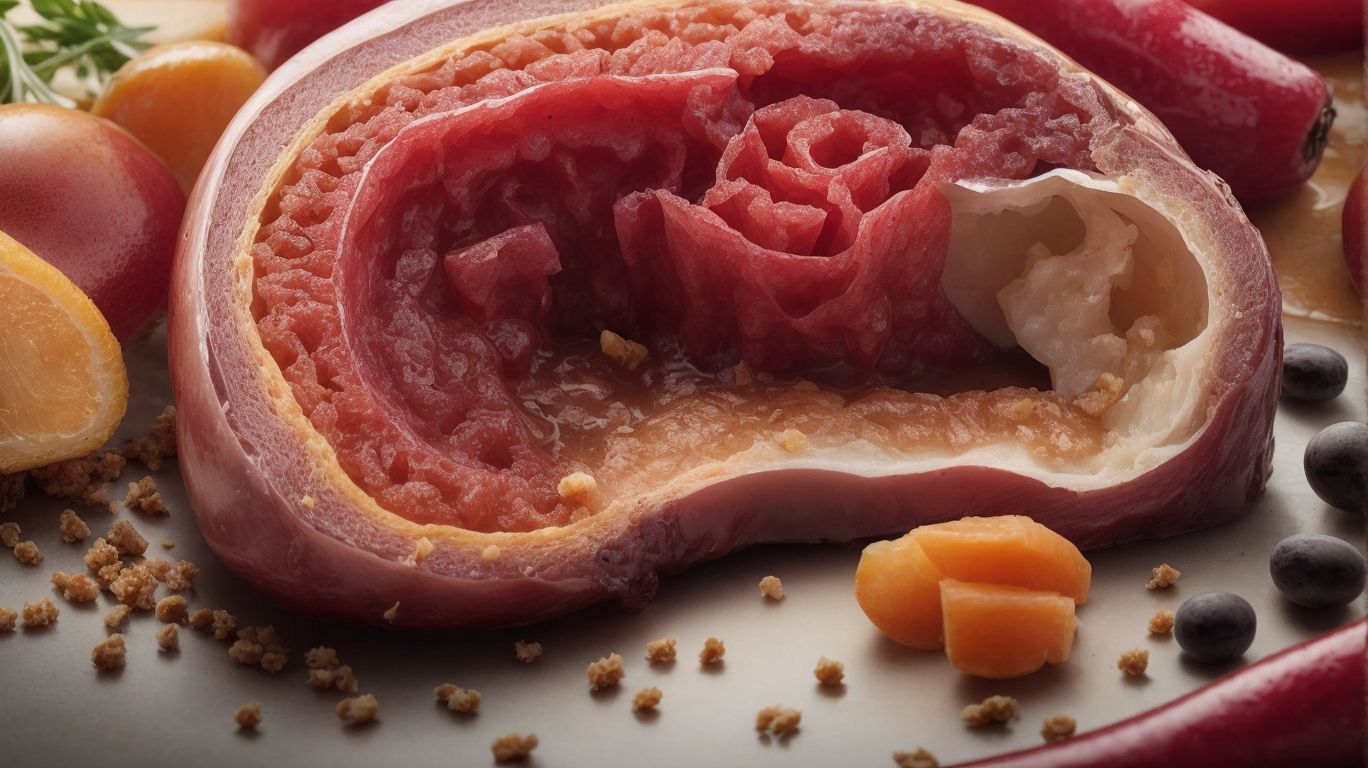Prebiotics play a crucial role in promoting the health and well-being of horses. In this comprehensive article, we will explore the various aspects of prebiotics, including their types, benefits, incorporation into a horse’s diet, and potential risks. Understanding what prebiotics are and how they work is essential for horse owners and trainers seeking to optimize the digestive health, nutrient absorption, and overall performance of their equine companions.
From improved digestive health to strengthened immune systems, the benefits of prebiotics for horses are significant. We will delve into the practical considerations of incorporating prebiotics into a horse’s diet and highlight potential risks and side effects that should be taken into account. By the end of this article, you will have a comprehensive understanding of the role prebiotics play in supporting the health and performance of horses, empowering you to make informed decisions for the well-being of your equine partners.
Key Takeaways:
What Are Prebiotics?
Prebiotics for horses refer to specialized nutrients that promote the growth and activity of beneficial bacteria in the equine digestive system, supporting overall gut health and microbiota balance.
These nutrients are essential for equine nutrition as they serve as food for the beneficial bacteria present in the horse’s gut. By nourishing these specific types of beneficial bacteria, prebiotics help to maintain a healthy balance of microorganisms in the digestive tract. This balance is crucial for optimal digestion and absorption of essential nutrients, as well as for supporting the horse’s overall well-being.
Prebiotics contribute to the modulation of the immune system and may aid in preventing certain digestive disorders in horses. By promoting the growth of beneficial bacteria, prebiotics can also help in crowding out harmful pathogens, thereby reducing the risk of gastrointestinal issues.
How Do Prebiotics Work?

Credits: Horselife.Org – Justin Williams
Prebiotics work by providing fuel for the beneficial bacteria in the equine digestive system, promoting fermentation processes, and contributing to the maintenance of a healthy microbiota in horses.
This essential fuel source enables the beneficial bacteria, such as Lactobacillus and Bifidobacterium, to thrive and outcompete harmful pathogens in the gut. Due to this balanced microbial community, the fermentation of dietary fibers is optimized, leading to the production of short-chain fatty acids, which play crucial roles in gut health maintenance.
The presence of prebiotics supports the absorption of nutrients, particularly volatile fatty acids, in the large intestine, ensuring improved overall digestive efficiency and contributing to the animal’s well-being. This symbiotic relationship between prebiotics and the gut microbiota highlights their pivotal role in maintaining equine digestive health.
What Are the Types of Prebiotics?
The types of prebiotics commonly used for horses include oligosaccharides such as fructooligosaccharides, which are known for their ability to selectively nourish beneficial bacteria in the equine digestive system.
Fructooligosaccharides (FOS) are a type of prebiotic that are particularly effective for promoting digestive health in horses. As oligosaccharides, they consist of short chains of simple sugars that pass undigested through the stomach and small intestine, reaching the hindgut where they serve as a food source for beneficial bacteria.
This selective nourishment helps to maintain a healthy microbial balance, supporting proper fermentation and absorption of nutrients. Unlike probiotics, which introduce live bacteria, prebiotics like FOS provide the ideal environment for the growth of existing beneficial bacteria, enhancing overall gut health in horses.
What Are the Benefits of Prebiotics for Horses?
Prebiotics offer several benefits for horses, including improved digestive health, strengthened immune system, reduced risk of colic, and enhanced energy levels that can positively impact overall performance.
Improving digestive health is one of the key strengths of prebiotics for horses. By promoting the growth of beneficial microorganisms in the gut, prebiotics assist in maintaining a healthy balance of bacteria and enhancing nutrient absorption. A bolstered immune system is crucial for equine well-being, and prebiotics play a vital role in supporting the body’s natural defenses. Their ability to reduce the risk of colic provides significant relief to horse owners, as colic is a common and potentially life-threatening digestive disorder. The enhanced energy levels resulting from improved digestive efficiency can carry substantial benefits for the horse’s performance in various activities such as racing, show jumping, and eventing.
Improved Digestive Health
The use of prebiotics in equine nutrition contributes to improved digestive health, particularly in the hindgut, and may address conditions such as hindgut acidosis, supported by products like EquiShure.
Prebiotics are non-digestible fibers that serve as food for beneficial gut bacteria in horses. When these prebiotics reach the hindgut, they ferment and promote the growth of beneficial bacteria, aiding in digestion and hindgut health.
EquiShure, for instance, contains encapsulated slow-release sodium bicarbonate which helps to stabilize pH levels in the hindgut. This can be instrumental in preventing the risk of hindgut acidosis, a common concern for horses fed high-grain diets.
By supporting a healthy hindgut environment, prebiotics can improve nutrient absorption and overall well-being in horses.
Enhanced Nutrient Absorption
Prebiotics can enhance nutrient absorption in horses, promoting the efficiency of nutrient utilization and potentially addressing issues related to leaky gut syndrome, supported by supplements like ActivAge.
The role of prebiotics, such as fructooligosaccharides and mannanoligosaccharides, is to provide fuel for beneficial gut bacteria, aiding in the maintenance of a healthy intestinal environment. By doing so, prebiotics contribute to improved digestion and absorption of essential nutrients, including proteins, vitamins, and minerals. This can have a positive impact on a horse’s overall health and performance, particularly in addressing conditions like leaky gut syndrome.
ActivAge, a supplement containing select prebiotics, is designed to support the maintenance of a balanced microbiome in horses, thereby promoting gut health and nutrient absorption.
Strengthened Immune System
Prebiotics play a role in strengthening the immune system of horses, with specific products such as Bio-Mos and Saccharomyces cerevisiae contributing to immune function and resilience.
These specialized prebiotic products have been shown to have a positive impact on equine health.
Bio-Mos, derived from a specific strain of yeast, aids in promoting gut health by supporting the growth of beneficial bacteria in the gastrointestinal tract. This, in turn, helps horses develop a stronger immune response, aiding in their overall well-being and performance.
Similarly, Saccharomyces cerevisiae, a yeast-based prebiotic, has been found to enhance nutrient utilization in horses, leading to improved overall health and a more robust immune system. By modulating the gut microbiota, Saccharomyces cerevisiae supports better digestive health and may contribute to a more efficient immune response.
Reduced Risk of Colic
The use of prebiotics in equine nutrition may contribute to a reduced risk of colic, supported by their ability to promote the growth of beneficial bacteria such as Bifidobacterium and Lactobacillus in the horse’s digestive system.
Prebiotics are non-digestible fibers that provide nourishment for the beneficial bacteria in the gut, helping to create a healthy microbial balance. By facilitating the growth of Bifidobacterium and Lactobacillus, prebiotics can enhance the gut’s ability to ferment fibrous materials and absorb nutrients, leading to improved digestive health in horses. This, in turn, reduces the risk of colic, a serious and potentially life-threatening condition affecting horses.
When the balance of the gut microbiome is disrupted, it can lead to inflammation and digestive issues, which are primary factors contributing to colic. By encouraging the growth of beneficial bacteria, prebiotics can help maintain a stable and healthy gut environment, mitigating the risk of colic and promoting overall equine well-being.
Increased Energy and Performance
Prebiotics have the potential to increase energy levels and positively impact the performance of horses, potentially addressing issues related to metabolic dysfunction and supporting the overall well-being of performance horses.
The use of prebiotics in equine nutrition is gaining attention due to their ability to promote a healthy gut environment, which can contribute to better digestion and nutrient absorption. This, in turn, may lead to improved energy utilization by the horse’s body, enabling them to perform at their best.
Prebiotics have been noted for their potential in modulating the gut microbiota, which plays a vital role in metabolism and nutrient utilization. This modulation may support metabolic function and target issues associated with metabolic dysfunction in horses, potentially aiding in the maintenance of a consistent and sustainable energy supply for performance.
How to Incorporate Prebiotics into a Horse’s Diet?
Incorporating prebiotics into a horse’s diet can be achieved through various methods, including the use of prebiotic supplements and synbiotic formulations designed to support digestive and immune function.
When considering the integration of prebiotics into a horse’s diet, it’s essential to understand the role of prebiotics in promoting the growth and activity of beneficial microorganisms in the gut. Prebiotics, such as fructo-oligosaccharides (FOS) and inulin, serve as fuel for the beneficial bacteria, helping to maintain a healthy microbial balance in the digestive tract.
Supplements containing specific prebiotics can be added to the horse’s feed to enhance the availability of these beneficial substances. Additionally, synbiotic formulations, which combine prebiotics with probiotics, offer a comprehensive approach to supporting gastrointestinal health and immune function in horses.
Feed Prebiotic Supplements
One method to incorporate prebiotics into a horse’s diet is through the administration of specialized prebiotic supplements, formulated to optimize equine nutrition and digestive health, as recommended by experts like Dr. Chris Mortensen.
Prebiotic supplements, such as those endorsed by Dr. Chris Mortensen, play a crucial role in supporting a horse’s digestive system. These supplements contain components that selectively stimulate the growth and activity of beneficial bacteria in the horse’s gut, aiding in the fermentation of dietary fibers and promoting a healthy microbial balance.
By enhancing the population of beneficial microorganisms, prebiotics improve the efficiency of nutrient absorption and support overall digestive health in horses. Dr. Chris Mortensen and other equine nutrition experts emphasize the significance of maintaining a balanced gut microbiota, which in turn positively impacts the horse’s immune function and metabolism.
Use Prebiotic-Rich Feeds
Incorporating prebiotic-rich feeds into a horse’s diet can support the digestive system, contributing to resilience against factors such as stress and promoting overall gut health and balance.
Prebiotics, such as fructooligosaccharides (FOS) and galactooligosaccharides (GOS), serve as a source of nutrition for beneficial bacteria in the equine digestive tract, fostering a healthy microbial population. By nourishing these essential bacteria, prebiotics help maintain a balanced gut flora, which is crucial for efficient digestion and nutrient absorption. They play a pivotal role in strengthening the mucosal lining of the gut, thereby enhancing its protective function against stress-related challenges.
Introducing prebiotic-rich feeds, such as lucerne hay, chicory, and Jerusalem artichoke, into a horse’s diet can be particularly advantageous in fortifying the digestive system. These feeds not only provide essential nutrients but also promote the growth of beneficial gut bacteria, leading to improved gastrointestinal resilience. The capacity of prebiotics to modulate the microbial environment in the gut offers a natural approach to mitigating stress-induced digestive disturbances, contributing to enhanced well-being and performance in horses.
Introduce Prebiotic-Rich Foods
Introducing prebiotic-rich foods into a horse’s diet can contribute to enhancing bacterial diversity in the digestive system, potentially mitigating the impact of antibiotics and supporting overall gut health.
This inclusion of prebiotics, such as inulin, fructooligosaccharides (FOS), and mannoligosaccharides (MOS), can create a favorable environment for beneficial bacteria, fostering better digestion and nutrient absorption. By promoting the growth of probiotic bacteria like Lactobacilli and Bifidobacteria, prebiotics can help maintain a healthy balance in the gut microbiota.
In addition, the interaction between prebiotics and antibiotics is noteworthy. While antibiotics can disrupt the gut microbiota, introducing prebiotics can assist in restoring and maintaining microbial balance, potentially reducing instances of antibiotic-associated diarrhea in horses.
Are There Any Risks or Side Effects of Prebiotics for Horses?
While prebiotics offer numerous benefits, there are potential risks and side effects to consider, especially in senior horses or those experiencing digestive upset or immune function imbalances.
One of the concerns with prebiotics in senior horses is the potential for digestive upset, as their digestive systems may be more sensitive and less efficient. For instance, increased fermentation from prebiotics could lead to gas, bloating, or diarrhea in these horses, impacting their overall well-being and comfort.
The use of prebiotics in horses with immune function imbalances should be approached cautiously. While prebiotics aim to support the growth of beneficial gut bacteria, they may inadvertently promote the proliferation of harmful pathogens in horses with compromised immune systems, exacerbating the existing imbalance and posing a risk to their health.
It’s essential for horse owners and caretakers to consult with equine nutritionists or veterinarians when considering prebiotic supplementation, especially for senior horses or those experiencing digestive or immune challenges. This can help ensure that the chosen prebiotic product and dosage are appropriate for the specific needs and health status of the horse, minimizing the potential risks while maximizing the benefits.
Overfeeding Can Cause Digestive Upset
Overfeeding prebiotics in horses can lead to digestive upset and disrupt the balance of the microbiota, highlighting the importance of prudent management and appropriate dosing.
Prebiotics are essential for promoting a healthy gut environment in horses, but excessive intake can have adverse effects. When horses consume an excessive amount of prebiotics, such as fructooligosaccharides and inulin, it can overload the digestive system, leading to bloating, diarrhea, and colic. This overconsumption can disrupt the delicate balance of microorganisms in the gut, resulting in an imbalance of the microbiota and compromising the overall digestive health of the horse.
Therefore, it is crucial for horse owners and caregivers to exercise caution when supplementing their animals with prebiotics, ensuring that they are administered in appropriate dosages as per the specific needs and digestive capacity of each individual horse. Consulting a veterinarian or equine nutritionist is advisable to establish an effective and safe supplementation regimen, tailored to the unique requirements of the horse.
Allergic Reactions
Some horses may exhibit allergic reactions to specific prebiotics, impacting gut health and potentially targeting beneficial bacteria such as Lactobacillus, necessitating careful monitoring and selection of suitable products.
Prebiotics, which are essential for nourishing the beneficial bacteria in a horse’s gut, can trigger allergic responses in sensitive individuals. When ingested, these substances can incite reactions such as gastrointestinal distress, skin irritation, and respiratory issues. The imbalance in the gut microbiota caused by allergenic prebiotics can compromise the horse’s overall well-being.
To mitigate these risks, horse owners should consult with veterinarians to identify prebiotics that are well-tolerated by their animals. Body condition scoring can be instrumental in gauging the impact of prebiotics on a horse’s gut health, enabling informed decisions about their usage in feed and supplements.
Interactions with Medications
Prebiotics may interact with certain medications in horses, particularly those experiencing stress or managed with specialized formulations such as Equine Senior, requiring careful consideration and veterinary guidance.
When prebiotics are introduced into a horse’s diet, they can affect the absorption and metabolism of certain medications. This is especially significant for horses dealing with stress, as their medication needs may change due to altered digestive processes.
For instance, in the case of Equine Senior, which is tailored for older horses, the interaction between its specific formulation and prebiotics becomes a crucial aspect to monitor.
Conclusion

Credits: Horselife.Org – Raymond Martin
In conclusion, prebiotics play a vital role in equine nutrition by promoting gut health, microbiota balance, and the overall well-being of horses, complementing the benefits of probiotics and contributing to a balanced and nourishing diet for equine companions.
These specialized prebiotic compounds, such as oligosaccharides, fructooligosaccharides, and inulin, serve as a valuable source of nutrition for beneficial gut bacteria, helping to optimize digestion and nutrient absorption in horses. By selectively stimulating the growth and activity of healthy gut microbiota, prebiotics contribute to the prevention of digestive disorders and support the immune function of equines.
The inclusion of prebiotics in equine diets can aid in managing conditions like colic, laminitis, and gastric ulcers, demonstrating their significance in enhancing the overall health and well-being of horses.
Frequently Asked Questions
What are prebiotics and why are they important for horses?
Prebiotics are non-digestible fibers that stimulate the growth and activity of beneficial bacteria in the gut. They are important for horses because they help maintain a healthy digestive system, which is crucial for overall health and performance.
How do prebiotics benefit horses?
Prebiotics provide several benefits for horses, including improved digestion, increased nutrient absorption, boosted immune system, and reduced risk of digestive issues such as colic and diarrhea. They also help maintain a healthy balance of gut bacteria, which can positively impact mood and behavior.
Are there any specific types of prebiotics that are best for horses?
While there are several types of prebiotics, the most beneficial ones for horses are fructooligosaccharides (FOS) and mannooligosaccharides (MOS). These prebiotics are easily fermentable and provide a food source for beneficial bacteria in the gut.
How can prebiotics help with digestive issues in horses?
Prebiotics can help prevent and relieve digestive issues in horses by promoting the growth of beneficial bacteria in the gut. This helps maintain a healthy balance of gut flora, which can prevent the overgrowth of harmful bacteria that can cause digestive issues such as colic and diarrhea.
Can prebiotics improve the overall health and performance of horses?
Yes, prebiotics can improve the overall health and performance of horses. A healthy gut is essential for proper nutrient absorption, which is crucial for maintaining a horse’s energy, immune system, and overall well-being. By promoting a healthy gut, prebiotics can help horses perform at their best.
Are there any risks or side effects associated with using prebiotics for horses?
Prebiotics are generally safe for horses to consume, but as with any supplement, it is important to follow recommended dosages. Overfeeding prebiotics can lead to excessive gas and discomfort in horses. If you notice any changes in your horse’s behavior or digestion while using prebiotics, consult with your veterinarian.



